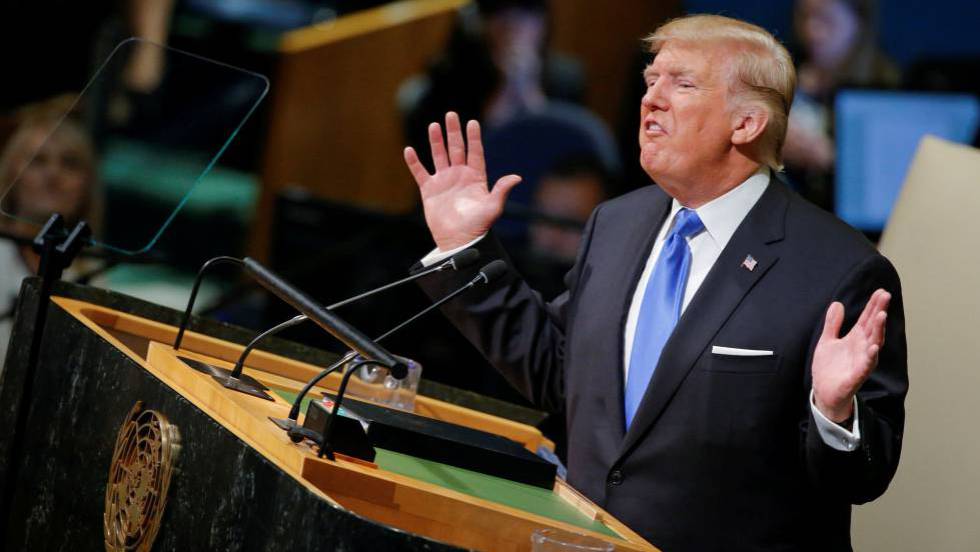
Beyond the fireworks, Trump’s speech to the U.N. proclaimed a new/old international order.
Politicians are a bit like actors in that once they are pigeonholed in a type of role – villain, comic, young boy, adorable little grandma – it is very difficult for the public to see them in any other type of role. It simply isn’t believable to them. There are notable cases, like the British actor, Sean Bean, whose Irish terrorist or “Hand of the King” always ends up the same: dead. He only asks that the screenwriters let him finish a story, and he is not the only one. Brit John Hurt holds the record playing 43 characters who are terminated before The End appears on the screen. When politicians get their constituents accustomed to certain ways, it is hard to make the electorate see that politicians can have another side.
That is why when an official of the United States government leaked that the speech Donald Trump was going to give last Tuesday before the U.N. General Assembly would be “profoundly philosophical,” many journalists couldn’t help but smile, or openly joke. It is obviously true that when he leaves the Oval Office, the president does not fall asleep flipping through the pages of Seneca’s “On Tranquility of Mind” or Kant’s “Perpetual Peace.” He checks Twitter while watching TV, just like many journalists and even more citizens.
So the president did not lie. From the green marble podium on 46th St. and First Avenue in New York, he lined up perfectly with the problem child role he’s been assigned. He completely ignored the extraterritoriality of the United Nations and instead acted as a host, theatrically welcoming all to New York. He also dedicated a notable part of his talk to threaten and nickname the North Korean leader as “Rocket Man” while the ambassador from Pyongyang was racking his brain trying to decide which face to put on before his speech in order to please his leader and not end up on the rocks with China. Iran also received its share of criticism, although the ambassador seemed more relaxed than his North Korean colleague.
But, offering the bait to social networks, Trump’s speech did have a notable philosophical substratum. The U.S. president insistently reiterated that international relations should be regulated by the principle of national autonomy. The phrase “strong sovereign states” sounded time and again in the room in what was, without a doubt, the biggest threat that Trump declared in his speech. What the president actually did was claim a return to pre-1914 diplomacy. Each country looking out for its own interests, weaving a web of bilateral agreements based on immediate benefit, but ready to reach out to solve inevitable differences.
Trump rejected the system of international living and coexistence – good or bad – that emerged after 1945. For him, generalized patriotic selfishness is a guarantee for peace. Each country can organize itself however it wants without others getting involved. And while “Rocket Man” was spinning over how to respond to Trump – something will be launched – the rest of us are left asking ourselves where the American Dream of extending democracy to the whole world went.

Leave a Reply
You must be logged in to post a comment.